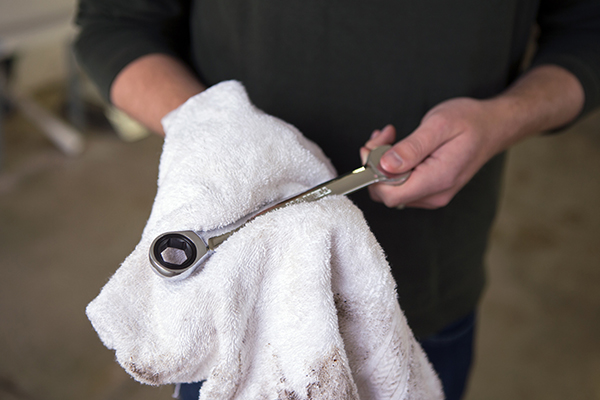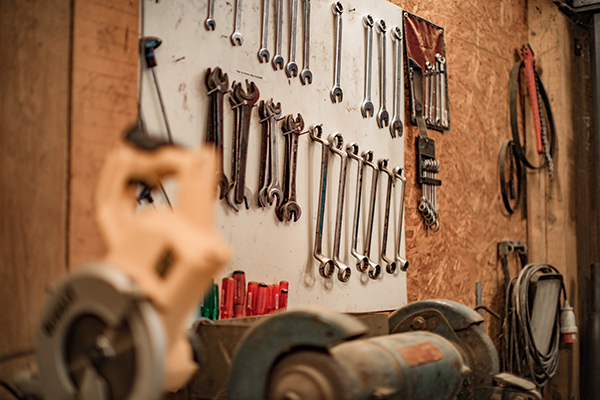
You know that sinking feeling you have when you’re driving, and your car starts making a funny sound? That sound signals something broken that’s now going to cost money and time to fix. But you take the car to the shop because the car is valuable to you. You need it to be repaired, so you pay the money. You take the time.
That same sinking feeling when you are in conflict with someone you care about signals that something is broken and in need of repair. Unfortunately, there is no relationship shop where you can leave the problem in the hands of a trusted mechanic. You can’t pay someone else to spend the time to fix it. But you can learn to become your own relationship mechanic, putting in the time and effort to repair a relationship you value.
The Mechanisms of Relationship
In order to be good mechanics we need to understand the mechanisms. The mechanisms of relationships are actually pretty simple.
- When your relationships are going well, you’re in a state of harmony, experiencing positive interactions and closeness.
- Disrepair occurs when conflict arises, or when your relationships are chronically broken or struggling. Your interactions become uncomfortable. You may even ignore or avoid each other.
- The only way to return to harmony is through a repair process.
We move through cycles of harmony, disrepair, repair and then back to harmony. Just like our vehicles—everything is fine until something breaks down and a repair is required for it to be fine again. Once we understand what mechanism we are in, we can figure out what needs to be done.
In our relationship with God, humans experienced an initial time of harmony with God. Then sin entered the scene, creating a state of disrepair, and Christ’s death and resurrection for the forgiveness of our sins is the repair that ultimately returns us to harmony. Continually, because sin still causes disrepair, our repentance and God’s kindness repairs our relationship as God’s mercies are renewed daily.
The Relationship Mechanic’s Tools

Just as God listens to and accepts us, we must do that for each other to repair what’s broken. That means we need to talk and listen. Talking and listening are the only way to start repairing interpersonal relationships. When repairing our relationship with God, we need to talk with him and we need to listen to him to gain acceptance and understanding. Talking, listening, acceptance, understanding, giving what you can, forgiveness, and grace are a relationship mechanic’s tools and replacement parts to restore harmony. We, as Christ followers who have been restored (repaired) through Christ, need to know when and how to use the tools to repair (restore) our human relationships. God’s Spirit counsels us to do that work through the divine guidance of the repair manual: the Bible.
Colossians 3 (NIV) gives us some of that guidance. Let’s look at each tool from the chapter.
Verse 12: Therefore, as God’s chosen people, holy and dearly loved, clothe yourselves with compassion, kindness, humility, gentleness, and patience.
We are chosen and can be trained for this work by the master Mechanic of all relationships. Clothe yourself with compassion, kindness, humility, gentleness, and patience. These tools are the internal traits that make a repair possible. We must practice with these tools in order to exhibit them when a repair is needed.
Verse 13:
Bear with each other and forgive one another if any of you has a grievance against someone. Forgive as the Lord forgave you.
We are encouraged and expected to repair with each other, just as God has repaired with us.
Verse 14: And over all these virtues put on love, which binds them all together in perfect unity.
Just as what holds our repair with God together is His love for us, the repair which returns us to harmony with each other is that same divine weld, that same expression: love.
Verse 15:
Let the peace of Christ rule in your hearts, since as members of one body you were called to peace. And be thankful.
We are to be People of Repaired Relationships, just as we are with Christ.
Become Expert Mechanics Together
Peace does not mean the absence of conflict. Research into intimate partnerships suggests that the most successful and secure relationships are those where the partners manage (repair) conflict. Relationships without conflict do not rate highly on satisfaction surveys.
We also understand this from our relationship with God. There is perpetual conflict between us and Him, and there will certainly always be conflict between sinful humans. The image of God in us reminds us to seek to walk in the footsteps of the Creator, who by His nature repairs brokenness rather than ignoring conflict or giving up completely. When working through conflict we must be cognizant that we interact with a fellow image bearer, and no matter what the conflict entails, we can extend grace if we commit to mirroring God’s grace in us. This holds true with family and friends as well as with less intimate relationships. We can choose to gain understanding rather than win a point. We can hear each other out, speak respectfully, and refuse to call names or pick fights, regardless of the divisive issues. As Proverbs 15:1 cautions, “A gentle answer deflects anger, but harsh words make tempers flare.”
Reminding ourselves of shared values and purpose—even simply remembering that we are all chosen and beloved by God—can help direct us toward productive resolution. James 1:19 gives specific and clear advice to “be quick to listen, slow to speak, and slow to get angry.” Listening, accepting people where they are, and understanding as much as we can of their perspective is half of the solution. Respecting our mutual personhood—attacking problems and not people, facing a problem together rather than seeing the other person as the problem, not judging people’s character by their worst moments or behaviors—helps us further along the path of repair. Having hard conversations means getting our hands dirty, being uncomfortable, straining with the nuts and bolts of our relationships; but we are not alone in this work. Returning to Colossians 3:
16 Let the message of Christ dwell among you richly as you teach and admonish one another with all wisdom through psalms, hymns, and songs from the Spirit, singing to God with gratitude in your hearts. 17 And whatever you do, whether in word or deed, do it all in the name of the Lord Jesus, giving thanks to God the Father through him.
God is with us, and we should be with each other. We need to support each other to become expert relationship mechanics.

About the Authors
Bryan Foster is a Licensed Marriage and Family Therapist. Bryan’s passion is helping individuals and couples heal from past wounds and cultivate a life full of connection. Learn more at bryanfostercounseling.com.
Melissa Foster loves Jesus and her family. The call of Melissa’s heart is to be with and work for the hurting and poor among us. She pursues that calling as a licensed clinical social worker. Melissa loves and serves the kids of LifeWay Church.
Bryan and Melissa have been married for 15 years and have two children, Patrick and Samantha. The Foster family have been members of LifeWay Church since 2016.